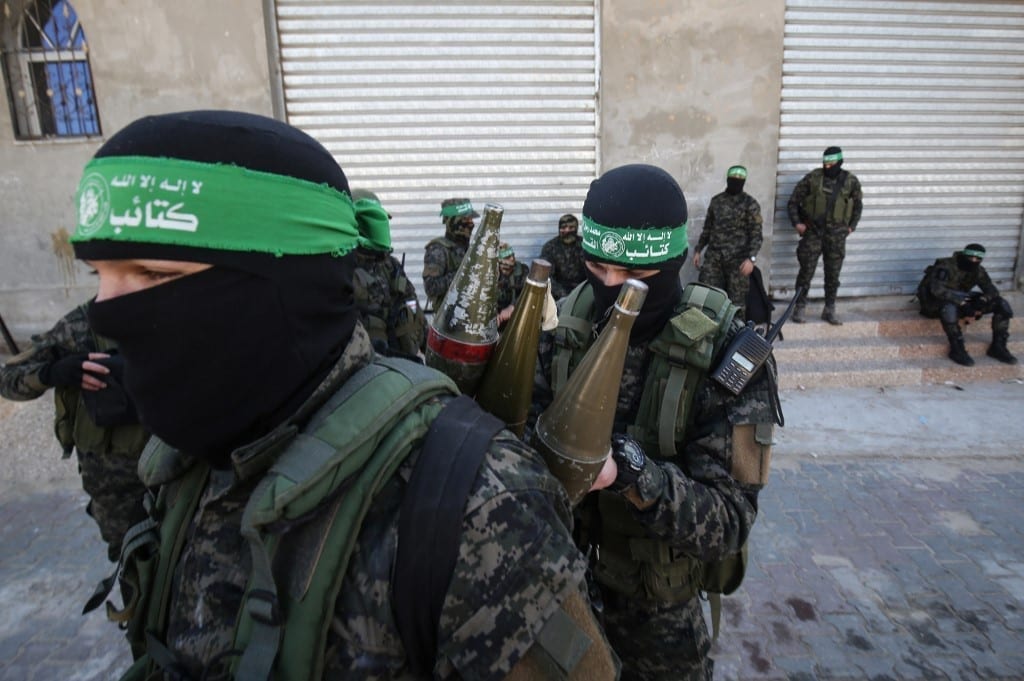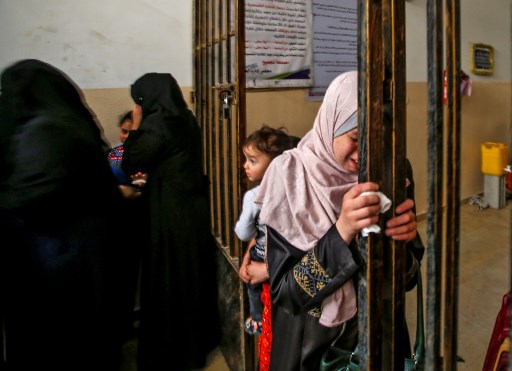Muhammad (not his real name) never expected that one day the shopkeeper in his neighborhood would ignore his salutation, or that the neighbors would prevent their daughters from playing with his little sister. He has always been a loved person in his community, but now he has become a social pariah. His university colleagues and closest friends kept away from him. His life turned upside down and socializing with the surrounding community has become confusing.
Muhammad did not commit any sin except that he is the son of someone who has been accused by the Hamas government in Gaza of communicating with Israel, and who’s dad was executed on this charge.
With the execution of his father, the suffering of Muhammad (27 years) began. Many of his neighborhood residents started to call him “son of an agent”, which prompted him to consider immigration.

Hiding Details
Muhammad said, “In mid-2011 my father disappeared, and we did not know where he was. A few days later, we were informed that he was being held prisoner by the Internal Security Force (ISF) of the Hamas government, on charge of intelligence cooperation with the Israeli occupation. We tried to find out about any details about this story, but we were never allowed to visit him.”
He added, “Even the lawyer who was authorized to defend my father was not allowed to access the case file, nor to know the charge against him. On the fifth day of the Israeli aggression against the Gaza Strip in 2014, we received the news of my father’s execution by firing squad. We were informed that the funeral ceremony will be limited to a number of family members, and that we were not allowed to hold any condolences.”
Muhammad and his family could not see the father and ask him about the truth about what happened to him, how he got involved in the matter, and whether he was actually an “agent” or not. His arrest, trial, and execution took place quickly and shockingly.
After those events took place, the life of the young man and his siblings changed completely. Their friendships with many of their neighbors have vanished, their world turned upside down, and they became ostracized by everyone. Although years have passed since the execution of the father, the stigma and social isolation never ended.
During the years of Hamas Movement rule of the strip, dozens of executions were illegally conducted, most of which were during the three wars Israel raided on the strip.
Paying The Price
“Why are we being held accountable for a sin we did not commit?” Muhammad asked, “the guilty one was my father not us, and now all my family members are suffering, the neighbors’ children run away from my siblings who want to play with them, because they are seen as the children of an “agent”. Muhammad thinks that what is happening with him and his family “is no different from what the Israeli occupation is doing; by punishing the families of those who carried out individual operations in the West Bank by demolishing their homes, and sometimes imprisoning them.”
“Children of an agent” is an attribute inherent to children who are informed that their father is an intelligence agent in cahoots with Israel, with the harm affecting the whole family. Many people refuse to establish business or marriage relationships with them, or even to be their neighbors. Sometimes they are forced to leave their area of residence, or to never leave their homes unless absolutely necessary.


H.N was no older than five when her father was executed at the hands of guerrilla groups during the Stone-Throwing Intifada in 1990 under the pretext of leaking information about them to Israel. In a traditional conservative society like the Gaza Strip community, girls and women find themselves surrounded by accusations that encompass their entire surroundings.
She said to “Daraj”: “It’s every girl’s dream to finish her college studies, then get married. However, because my father was killed on the grounds of a charge that we do not know yet, every time someone proposes to marry me, he runs away when he finds out about what happened to my father, as if I were the criminal, not my father. ”
“If my father made a mistake, he has already been punished. Society must not hold us responsible for a mistake that we have not committed, and we should not be punished for an act we know nothing about. I dream of starting a family like any girl, but the lasting stigma that society stuck to me and my family has shattered my dream, and now I am now 35 years old.” she added.
She also noted that sometimes she does not give her full name to her co-workers, fearing that they will stay away from her because her father was killed on the charge of intelligence cooperation with Israel.
Escaping Criticism
The woman pointed out that she and her family will have to sell the house they have been living in for more than 30 years, and look for another faraway house, or even leave the Gaza Strip, to escape people’s harsh criticisms. Maybe a new place could allow her to secure her future, and that of her sister who is 4 years younger and still unmarried until now.
While the Palestinian society rejects establishing any relations with the families of people convicted of intelligence cooperation with Israel, a large number of Palestinian workers at the West Bank and Gaza Strip seek to work in the Palestinian territories occupied since 1948, which make them a target of suspicions and investigations.
Activist Muhammad Abu Hashim of the Palestinian Center for Human Rights says that “declaring names of people convicted of collaborating with Israel will hurt and disgrace their families, excluding them from the society and stigmatizing them forever”.
Breaching the Law
Executions conducted in Gaza have raised many local and international rights criticisms, especially those conducted in public squares or without fair trials or those that turn into something that resembles a joint trial.
During the years of Hamas Movement rule of the strip, dozens of executions were illegally conducted, most of which were during the three wars Israel raided on the strip
Abu Hashim tells Daraj that “in Gaza Strip, there are three types of execution: the first is executing accused agents once caught, without a legal trial, meaning that it is a field execution, which is locally and internationally rejected and considered an act of murder with intent, and this is mostly conducted by the Palestinian factions. In this case, the executed is innocent; as a defendant is innocent until proven guilty”.
He resumes clarifying that “the second execution type in Gaza is executing accused agents whose cases do not meet the legal requirements after an urgent martial trial (field court) or undergoing torture, resulting in immediate executions. Those accused are not allowed to defend themselves or get a lawyer, which is considered a breach of international standards applied to Palestine”.
Regarding the third type, Abu Hashim says “it is executing persons based on legal procedures that proved them guilty, unlike the previous types”.
He adds, “disgracing families of convicted agents by society and demolishing houses of resistance operations instigators in the West Bank will never be the same; as Israeli practices are a clear violation of human rights, while disgracing families of convicted agents is a social behavior that can be changed.”
He continues, “this can be handled by a legal obligation that prevents people from discarding or defaming families of convicted agents, in addition to secret trials and non-disclosure of names or identities.”
Abu Hashem adds, “In 2014, the Government in Gaza strip headed by Hamas Movement has illegally executed almost 30 people in what is called field executions. These cases are to be considered by the International Criminal Court to enable pursuing resistance leaders in Gaza for executing people accused of collaborating with the enemy.”
He also confirms that since 2002, there have been no executions in the West Bank; as Palestine complied with the related international laws, while executions are still being conducted in the Gaza Strip.






